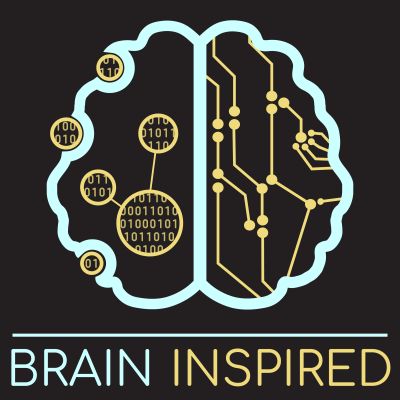Neuroscience and artificial intelligence work better together. Brain inspired is a celebration and exploration of the ideas driving our progress to understand intelligence. I interview experts about their work at the interface of neuroscience, artificial intelligence, cognitive science, philosophy, psychology, and more: the symbiosis of these overlapping fields, how they inform each other, where they differ, what the past brought us, and what the future brings. Topics include computational neuroscience, supervised machine learning, unsupervised learning, reinforcement learning, deep learning, convolutional and recurrent neural networks, decision-making science, AI agents, backpropagation, credit assignment, neuroengineering, neuromorphics, emergence, philosophy of mind, consciousness, general AI, spiking neural networks, data science, and a lot more. The podcast is not produced for a general audience. Instead, it aims to educate, challenge, inspire, and hopefully entertain those interested in learning more about neuroscience and AI.
https://braininspired.co/series/brain-inspired/
BI 164 Gary Lupyan: How Language Affects Thought
Support the show to get full episodes and join the Discord community.
Check out my free video series about what's missing in AI and Neuroscience
Gary Lupyan runs the Lupyan Lab at University of Wisconsin, Madison, where he studies how language and cognition are related. In some ways, this is a continuation of the conversation I had last episode with Ellie Pavlick, in that we partly continue to discuss large language models. But Gary is more focused on how language, and naming things, categorizing things, changes our cognition related those things. How does naming something change our perception of it, and so on. He's interested in how concepts come about, how they map onto language. So we talk about some of his work and ideas related to those topics.
And we actually start the discussion with some of Gary's work related the variability of individual humans' phenomenal experience, and how that affects our individual cognition. For instance, some people are more visual thinkers, others are more verbal, and there seems to be an appreciable spectrum of differences that Gary is beginning to experimentally test.
- Lupyan Lab.
- Twitter: @glupyan.
- Related papers:
- Hidden Differences in Phenomenal Experience.
- Verbal interference paradigms: A systematic review investigating the role of language in cognition.
- Gary mentioned Richard Feynman's Ways of Thinking video.
- Gary and Andy Clark's Aeon article: Super-cooperators.
0:00 - Intro 2:36 - Words and communication 14:10 - Phenomenal variability 26:24 - Co-operating minds 38:11 - Large language models 40:40 - Neuro-symbolic AI, scale 44:43 - How LLMs have changed Gary's thoughts about language 49:26 - Meaning, grounding, and language 54:26 - Development of language 58:53 - Symbols and emergence 1:03:20 - Language evolution in the LLM era 1:08:05 - Concepts 1:11:17 - How special is language? 1:18:08 - AGI
